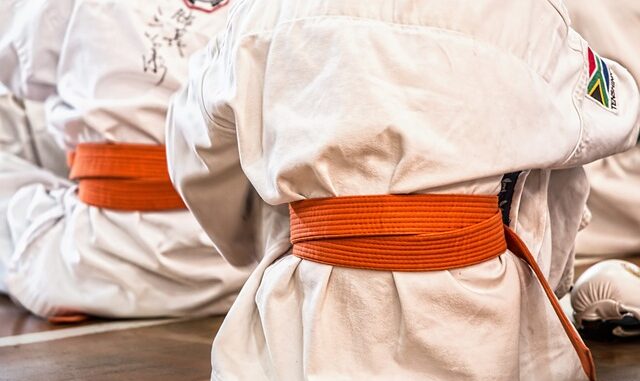
Summary
Martial arts training, particularly Tai Chi, has been shown to increase physical activity levels in older adults with mild cognitive impairment. This form of exercise offers a unique blend of physical and mental engagement, contributing to improved cognitive function, balance, and overall well-being. With its focus on mindfulness and controlled movements, martial arts provides a promising avenue for enhancing the lives of seniors facing cognitive challenges.
Main Story
Hey there! So, we’re all looking for ways to keep sharp as we age, right? Well, I’ve been diving into some fascinating stuff about how martial arts could actually be a game-changer for brain health in seniors. It might sound a little out there at first, picturing older adults kicking and chopping, but hear me out!
It’s not just about the physical side, though that’s a big part of it. Think about it: martial arts involves this great blend of physical movement and mental focus. And, you know, that’s exactly what our brains need, especially as we get older. Now, when I say martial arts, I’m not necessarily talking about high kicks and crazy acrobatics. Take Tai Chi, for example, that gentle flowing movement, that’s a martial art too! A study, and this is pretty cool, showed how effective it is for seniors facing mild cognitive decline. They saw that those who practiced Tai Chi through telehealth increased their physical activity levels. That’s especially important, because staying active can sometimes be a real challenge when you’re dealing with these things.
But the benefits go beyond just physical activity. There’s a lot of intricate movement, and you’ve got to remember complex sequences, which really works the brain, you know? It enhances your memory and recall. It’s like a workout for your brain! Plus, all the mindfulness and controlled breathing? That can really lower your stress. For example, when I was feeling totally overwhelmed by a deadline at work the other day, I did a quick 5 minutes of mindful breathing, it made a world of difference. It’s amazing how much clarity you get, and this can directly translate to improved mental well-being, and that’s huge.
And let’s be real, the physical part is also really important. Training in martial arts improves balance and strength, and that is a major benefit. It reduces the risk of nasty falls, and that’s a real worry for many seniors. Not to mention that feeling of confidence that comes with it, the ability to defend yourself… that can give you a real boost of security and independence, which is wonderful.
The cool thing is, there’s a martial art for everyone. Tai Chi is fantastic for those who need a low-impact option. Other types like Taekwondo and Karate can be great too, and you can find classes that adapt to your individual needs and abilities. There really is something out there for everyone.
Furthermore, and this is also really important, martial arts can bring people together. The social aspect is so important. Going to a class, interacting with other people, fostering that sense of community and belonging combats social isolation. This is really significant, since, as we all know, loneliness can really take a toll on your cognitive health.
So, while we definitely need more research to truly understand the full impact of martial arts, the existing evidence is incredibly promising, isn’t it? It really suggests a whole new avenue for improving the lives of seniors experiencing cognitive challenges. It’s a holistic approach, that takes into account both the physical and mental. It’s a dynamic and engaging way for seniors to stay active and improve their quality of life. I think that’s pretty powerful, don’t you?
Just so you know, this information is current as of January 19, 2025, but keep in mind, that the world of geriatric care is always evolving, so we’ll probably see more developments in the future. For now, it’s a super interesting area to watch!


The point about the social benefits is crucial; the sense of community and belonging fostered in martial arts classes can be incredibly valuable, particularly in combating isolation which can negatively impact cognitive health.
Absolutely, and the way these classes often encourage teamwork and shared goals can enhance that sense of connection, fostering friendships and making the journey more enjoyable and sustainable. It’s more than just exercise; it becomes a real support network.
Editor: MedTechNews.Uk
Thank you to our Sponsor Esdebe – https://esdebe.com
That’s a great point about the shared goals, it’s so true! That sense of working together towards something is such a motivator, and it really helps to create a positive and encouraging atmosphere within the classes. I think this is crucial for keeping up with any exercise program.
Editor: MedTechNews.Uk
Thank you to our Sponsor Esdebe – https://esdebe.com
So, the “kicking and chopping” image may be misleading, but the complex sequences are also a mental workout? Does that mean that forgetting a routine is part of the process, like a brain-training game?
That’s a fantastic question! It’s true, the complex sequences definitely challenge memory. I think you could view forgetting a routine as a natural part of that challenge. It’s like the brain needs to work harder to recall, strengthening those pathways as you revisit the movements.
Editor: MedTechNews.Uk
Thank you to our Sponsor Esdebe – https://esdebe.com